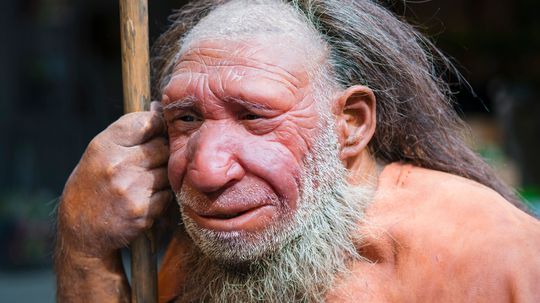In the annals of human history, a prevailing narrative has emerged – that Homo sapiens outsmarted and ultimately triumphed over our Neanderthal cousins. However, upon closer examination, it becomes apparent that this oversimplified notion fails to capture the complex dynamics at play during this critical juncture in our evolutionary journey.
A Deeper Look into Neanderthal Extinction
Contrary to popular belief, the demise of the Neanderthals cannot be solely attributed to Homo sapiens’ intellectual superiority. While it is true that our species possessed certain cognitive advantages such as enhanced social cooperation and advanced tool-making abilities, these factors alone do not account for their extinction.
The reality is far more nuanced. The interplay between various ecological and environmental factors played a pivotal role in shaping the fate of both species. Climate fluctuations, resource scarcity, and competition for territory all contributed to an intricate web of circumstances that influenced population dynamics.
Furthermore, recent scientific discoveries have shed light on potential genetic interactions between Homo sapiens and Neanderthals. Interbreeding events between these two hominin groups resulted in hybrid offspring who carried a blend of genetic traits from both lineages. This further complicates any simplistic notions of one species simply “outsmarting” another.
The Legacy of Coexistence
Instead of viewing this chapter in human evolution as a tale of superior intellect prevailing over lesser minds, we should recognize the significance of coexistence and adaptation strategies employed by both groups. Both Homo sapiens and Neanderthals developed unique cultural practices tailored to their respective environments.
This prolonged period where two distinct hominin populations shared territories undoubtedly led to exchanges in knowledge and ideas – an intellectual cross-pollination that likely influenced the trajectory of human development. The Neanderthals, with their robust physiques and specialized adaptations to cold environments, possessed a wealth of knowledge that Homo sapiens could have learned from.
Ultimately, it was not a matter of one species outsmarting the other but rather an intricate dance between survival strategies and environmental circumstances. While Homo sapiens may have had certain advantages in terms of adaptability and social dynamics, it is crucial to acknowledge the role played by external factors beyond our control.
Redefining Our Understanding
In conclusion, the prevailing narrative that humans outsmarted Neanderthals oversimplifies a complex interplay of genetic, ecological, and cultural factors at play during this critical period in our shared history. By embracing a more nuanced perspective on our evolutionary journey alongside our extinct cousins, we can gain valuable insights into what truly shaped us as a species.




